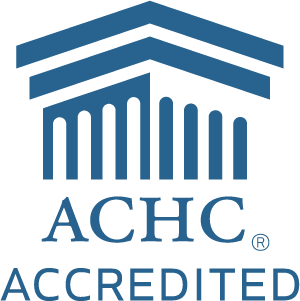Summer camps offer incredible opportunities for kids and teens to explore, learn, and build friendships. However, for children with chronic illnesses, ensuring their safety and well-being requires additional planning and consideration. Here’s a comprehensive guide to help parents and guardians ensure that their children have a safe and enjoyable summer camp experience.
Summer Camp for Kids with a Chronic Illness
Summer camps are more than just fun getaways; they are crucial for personal growth, social skills, and independence. For children with chronic illnesses, the benefits extend further:
- Increased Self-Esteem: Successfully managing their health away from home boosts confidence.
- Social Interaction: Meeting peers facing similar challenges can be comforting and empowering.
- Skill Development: Camps offer various activities that help develop new skills and hobbies.
Choosing the Right Camp
Selecting a camp tailored to meet the needs of children with chronic illnesses is the first step:
- Specialized Camps: Some camps are designed specifically for children with certain illnesses, providing specialized medical care and tailored activities.
- Inclusion Policies: Ensure the camp is inclusive and can accommodate your child’s specific needs.
- Medical Facilities: The camp should have adequate medical facilities and personnel trained to handle emergencies related to your child’s condition.
Some organizations like, The New England Hemophilia Association offer summer camp options that are curated for kids and teens with chronic illness.
Preparing for Camp
Preparation is key to ensuring your child’s safety and peace of mind:
- Medical Clearance: Obtain a medical clearance from your child’s healthcare provider.
- Medication Management: Ensure the camp has a robust system for storing and administering medications. Provide detailed instructions and enough medication for the entire stay.
- Emergency Plan: Develop a detailed emergency plan with the camp staff, including steps to take in various scenarios related to your child’s illness.
- Education: Educate the camp staff about your child’s condition, triggers, symptoms, and necessary treatments.
Packing Essentials
Packing for camp requires careful consideration to ensure all health needs are met:
- Medications: Pack all necessary medications in original containers with clear labels.
- Medical Supplies: Include any medical equipment or supplies your child may need (e.g., inhalers, EpiPens, glucose monitors).
- Health Documentation: Provide a comprehensive health dossier, including medical history, medication schedule, emergency contacts, and insurance information.
- Comfort Items: Include items that provide comfort and reassurance, such as a favorite blanket or stuffed animal.
On-Site Safety Measures
Ensuring on-site safety involves active communication and vigilance:
- Regular Check-Ins: Establish a regular check-in routine with camp staff to monitor your child’s well-being.
- Buddy System: Implement a buddy system where your child is paired with a friend or camp counselor who knows their condition.
- Activity Adaptation: Ensure that all activities are adapted to suit your child’s capabilities and health status.
Educating Your Child
Empowering your child with knowledge about their condition and safety protocols is crucial:
- Self-Advocacy: Teach your child to communicate their needs and recognize symptoms that require attention.
- Emergency Procedures: Ensure they know the steps to take in an emergency and who to contact.
Post-Camp Follow-Up
After camp, it’s vital to assess your child’s experience and health:
- Health Check: Schedule a follow-up appointment with your child’s healthcare provider to address any concerns or changes in their condition.
- Feedback: Discuss the camp experience with your child and the camp staff to identify any areas for improvement for future stays.
With careful planning and the right precautions, summer camps can be a safe and enriching experience for children and teens with chronic illnesses. By choosing the right camp, preparing thoroughly, and maintaining open communication, parents can ensure their children enjoy all the benefits of camp while staying healthy and safe.
Remember, the goal is to create positive memories and foster independence, all while keeping health and safety a top priority.
Personalized Care,
Professional Excellence
Improving Your Quality of Life Is Our Mission





